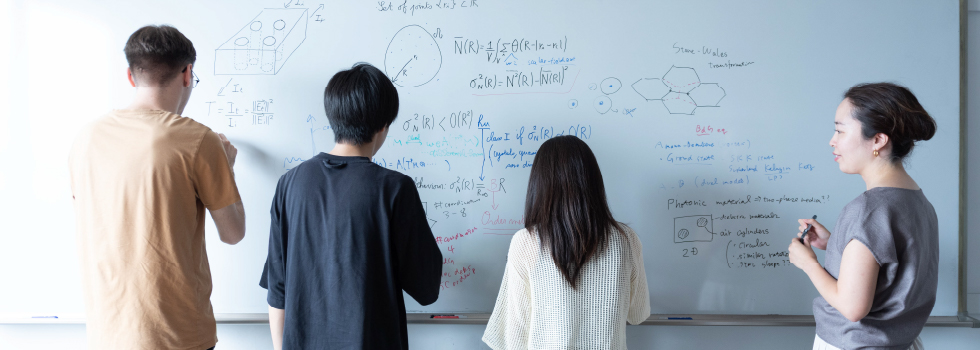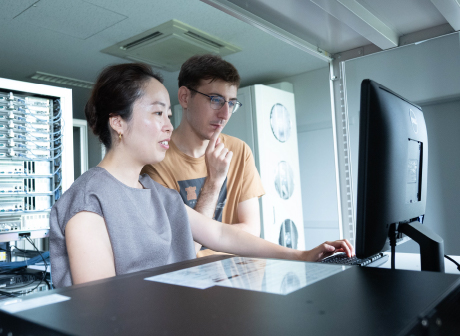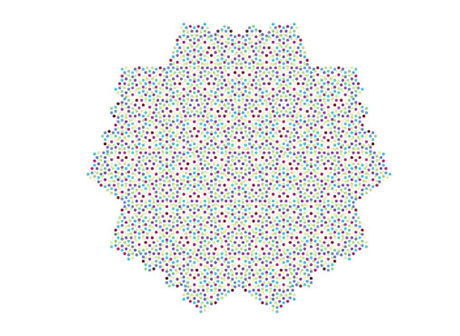
New Frontiers in Materials Science through the Integration of Quasicrystals and Quantum Computing
This research focuses on quasicrystals, which, despite lacking periodicity, exhibit long-range order. We aim to theoretically uncover novel physical properties in quantum many-body systems while developing efficient quantum algorithms to analyze them. In particular, we investigate electronic correlations and superconducting behavior emerging from quasiperiodic structures, while also establishing efficient quantum state estimation methods for fermionic systems. Through this interdisciplinary approach, we bridge condensed matter physics and quantum information science, paving the way for the creation of novel quantum functionalities rooted in the unique nature of quasicrystals.
FEATURE
Development of Quantum State Estimation Methods Based on Fermionic Shadow Tomography
Potential Applications of Condensed Matter Physics in Quantum Error-Correcting Codes
Interdisciplinary Research Integrating Quantum Information and Condensed Matter Physics
RESULTS
Research progress
Integration of Condensed Matter Physics and Quantum State Estimation
We advanced theoretical studies on electronic correlations and superconducting properties in quasicrystals, while also developing a novel method for efficient quantum state estimation in fermionic many-body systems. In particular, we have constructed a k-RDM estimation algorithm based on fermionic shadow tomography, which we are currently implementing in a form compatible with real quantum devices. This has opened a new pathway for extracting material properties of quasiperiodic structures using quantum computational resources. By reading out observables derived from the perspective of condensed matter physics through the techniques of quantum information science, this fusion-based approach has led to significant progress in understanding quantum many-body systems.

Further development
Creation of Quantum Information Technology by Quasicrystals
We aim to harness the nontrivial symmetries and long-range order inherent in quasiperiodic structures to explore new functionalities in quantum many-body systems and quantum error correction. In particular, we focus on the topological characteristics and controllability of wavefunction structures unique to quasiperiodicity, with the goal of constructing a novel foundation for quantum information processing. In parallel, we will refine quantum algorithms and establish theoretical and numerical frameworks that enable realistic-scale simulations of material properties in large quasiperiodic systems.
